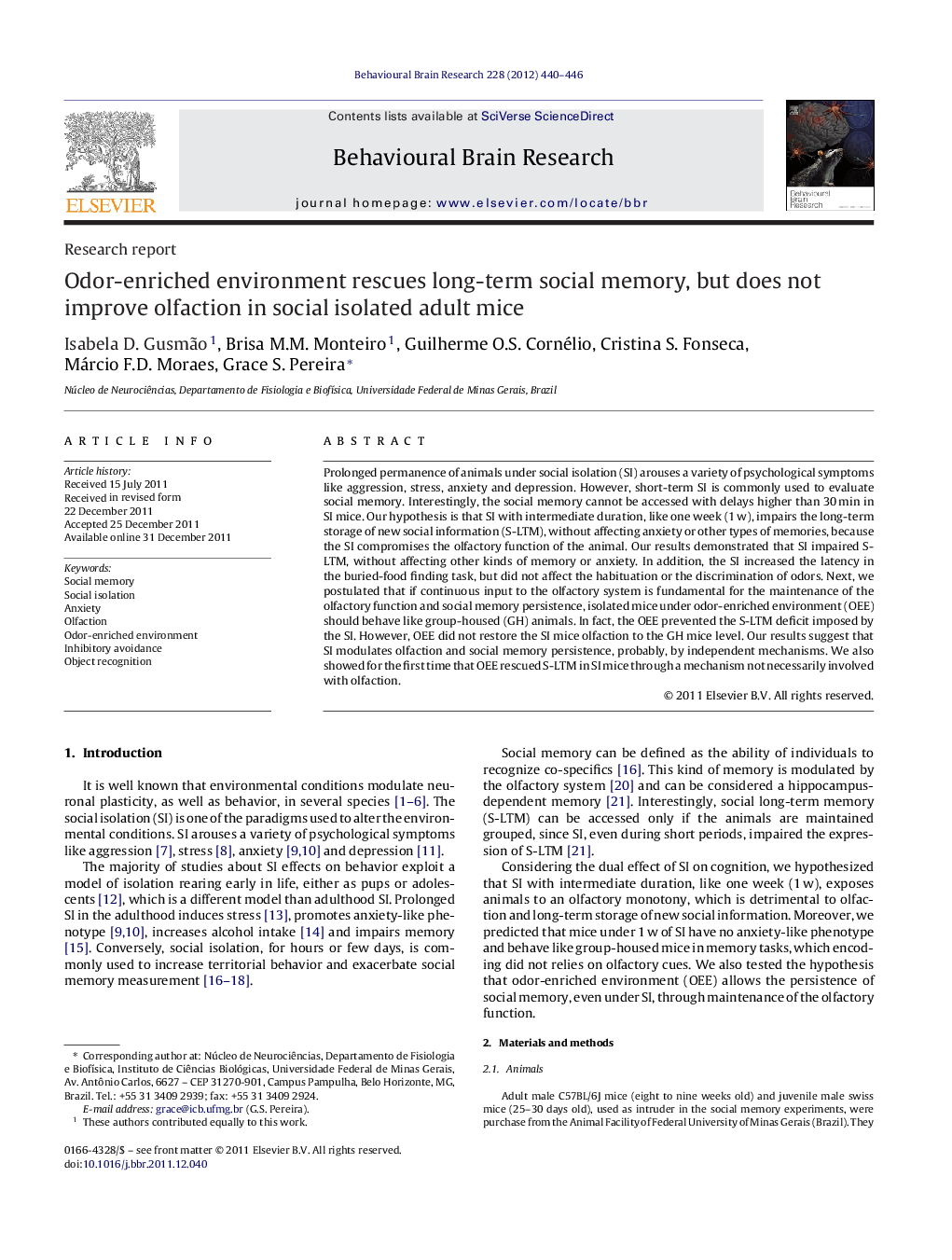| Article ID | Journal | Published Year | Pages | File Type |
|---|---|---|---|---|
| 4313479 | Behavioural Brain Research | 2012 | 7 Pages |
Prolonged permanence of animals under social isolation (SI) arouses a variety of psychological symptoms like aggression, stress, anxiety and depression. However, short-term SI is commonly used to evaluate social memory. Interestingly, the social memory cannot be accessed with delays higher than 30 min in SI mice. Our hypothesis is that SI with intermediate duration, like one week (1 w), impairs the long-term storage of new social information (S-LTM), without affecting anxiety or other types of memories, because the SI compromises the olfactory function of the animal. Our results demonstrated that SI impaired S-LTM, without affecting other kinds of memory or anxiety. In addition, the SI increased the latency in the buried-food finding task, but did not affect the habituation or the discrimination of odors. Next, we postulated that if continuous input to the olfactory system is fundamental for the maintenance of the olfactory function and social memory persistence, isolated mice under odor-enriched environment (OEE) should behave like group-housed (GH) animals. In fact, the OEE prevented the S-LTM deficit imposed by the SI. However, OEE did not restore the SI mice olfaction to the GH mice level. Our results suggest that SI modulates olfaction and social memory persistence, probably, by independent mechanisms. We also showed for the first time that OEE rescued S-LTM in SI mice through a mechanism not necessarily involved with olfaction.
► Adulthood social isolation decreased the animal's olfactory ability. ► Adulthood social isolation impaired the persistence of social memory without compromise other types of memory or anxiety. ► Odor-enriched environment prevented the social memory impairment, but did not affect the sense of smell of social isolated mice.
